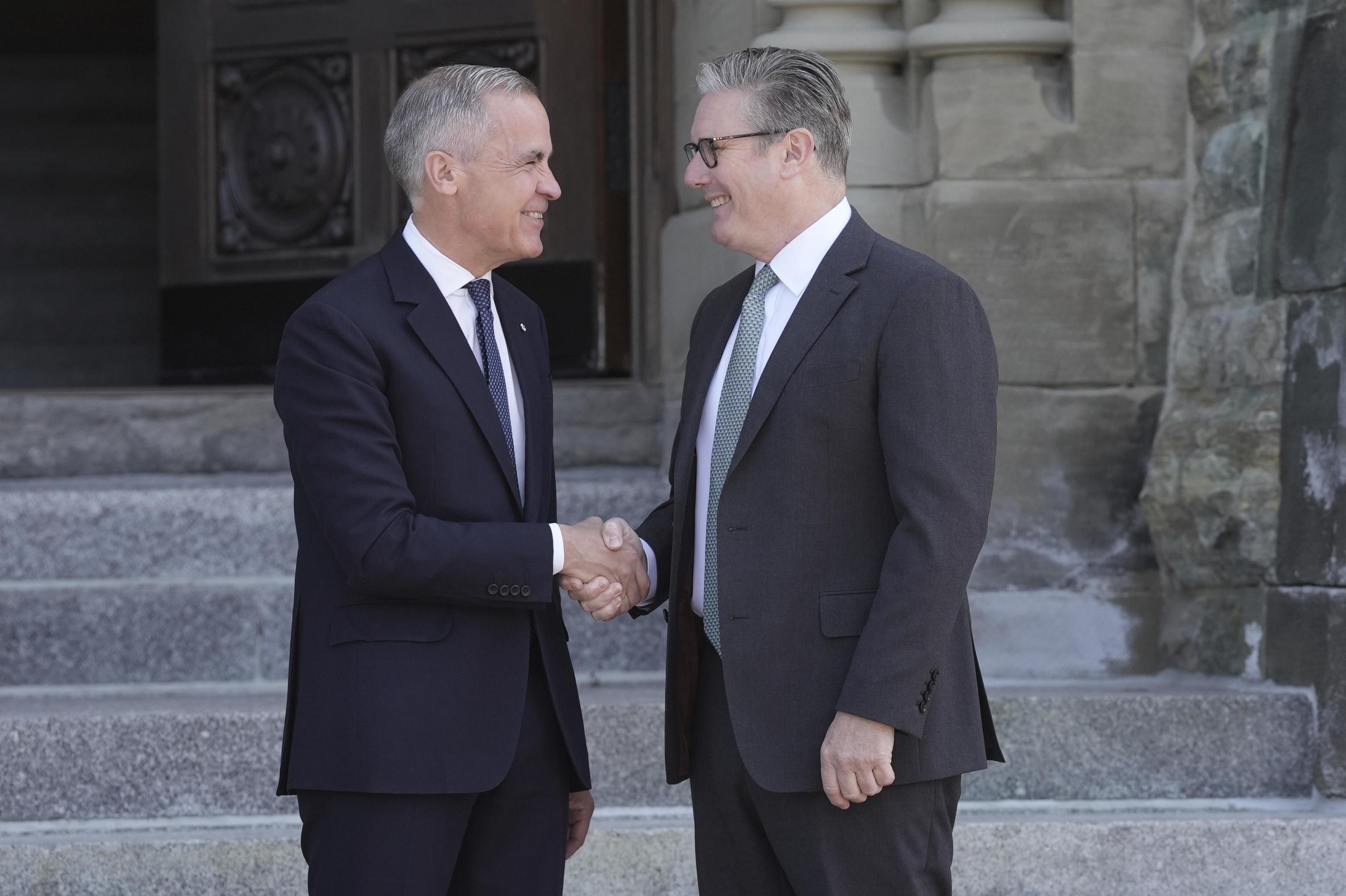The escalating situation in the Middle East, with the crossfire between Israel and Iran, is the main issue on the horizon of the G7 summit, which begins on Monday in Alberta, Canada. The leaders of the world's most industrialized countries (Canada, France, Germany, Italy, Japan, the United Kingdom, and the United States), along with the EU, which has permanent political representation in the group, have already arrived.
The attacks by Israel on Iran and Tehran's retaliation, which seemed to catch many world leaders by surprise, are the latest signs of a more volatile world as Trump seeks to withdraw the U.S. from its role as the world's policeman, as highlighted by the AP news agency.
On his flight to Canada, British Prime Minister Keir Starmer explained that he had discussed efforts to de-escalate the crisis with U.S. President Donald Trump and Israeli Prime Minister Benjamin Netanyahu. "We have been concerned for some time about Iran's nuclear program. We recognize Israel's right to self-defense, but I am very clear that this needs to be de-escalated," said the Prime Minister. According to Starmer, there will be "intense discussions" at the summit about this significant crisis that threatens the entire region. The UK is currently sending fighter jets and other military reinforcements to the Middle East.
German Chancellor Friedrich Merz stated yesterday that he hoped an agreement on four points would be reached to find a solution to the conflict between Israel and Iran, as reported by Reuters. Merz highlighted that Iran should not be able to develop or possess nuclear weapons; Israel has the right to defend itself from the existential threats posed by Iran's nuclear program; the conflict should not escalate; and there is a need to create room for diplomatic efforts. "This issue will have a very prominent place on the agenda," Merz declared.
Additionally, Merz has urged the Iranian regime to stop attacks on Israeli civilian targets and stated that Germany is prepared for possible actions against Iran if it targets Jewish institutions in the Federal Republic. "Tehran must immediately cease attacks on Israeli civilian targets," Merz said before departing for the summit, as reported by Efe. "We are preparing in case Iran targets Jewish or Israeli establishments in Germany," the Chancellor added.
Canadian Prime Minister Mark Carney, the summit's host, has decided to forgo the usual practice of a joint statement at the end of the meeting, held at the Kananaskis mountain resort about 90 kilometers west of Calgary. A senior Canadian official stated that Ottawa wants to focus on the measures that the seven members will collectively adopt, hence the decision.
The visit of U.S. President Donald Trump to Canada, following his push to make his northern neighbor - and traditional ally - the 51st state of the U.S., is being closely watched. This is the first international meeting the Republican is participating in since taking office on January 20.
The last time Canada hosted the G7 in 2018, Trump was also president and left the summit before denouncing then-Canadian Prime Minister Justin Trudeau as "very dishonest and weak" and instructing his delegation to withdraw their approval of the final communique.
With other leaders wanting to speak with Trump in an effort to dissuade him from imposing tariffs, the summit risks becoming a series of bilateral conversations rather than a display of unity, according to AP analysis. Former Canadian Prime Minister Jean Chrétien (1993-2003) stated a few days ago that if Trump behaves inappropriately, leaders should ignore him and remain calm, as Carney did in the Oval Office. "He tends to be a bully," Chrétien pointed out. "If Trump has decided to make a spectacle to be in the news, he will do something crazy. Let him do it and continue talking normally," Chrétien emphasized in remarks reported by AP.
On the other hand, Canada has long been one of the strongest supporters of Ukraine. Trump came to power promising to end the war with Russia within 24 hours, but diplomatic efforts have stalled. A Ukrainian official involved in the preparations said hopes for a strong statement of support for Ukraine had faded. Instead, success for Kyiv would be a "friendly meeting" between Trump and Zelenski.
While awaiting Trump's remarks - or reading his post on social media - a senior U.S. official stated that discussions will cover trade and the global economy, critical minerals, smuggling of migrants and drugs, wildfires, international security, artificial intelligence, and energy security. "The President is eager to pursue his goals in these areas, including making U.S. trade relationships fair and reciprocal," the official assured.
Leaders outside the G7 who have been invited to the summit by Carney include the heads of state of India, Ukraine, Brazil, South Africa, South Korea, Australia, Mexico, and the United Arab Emirates.
